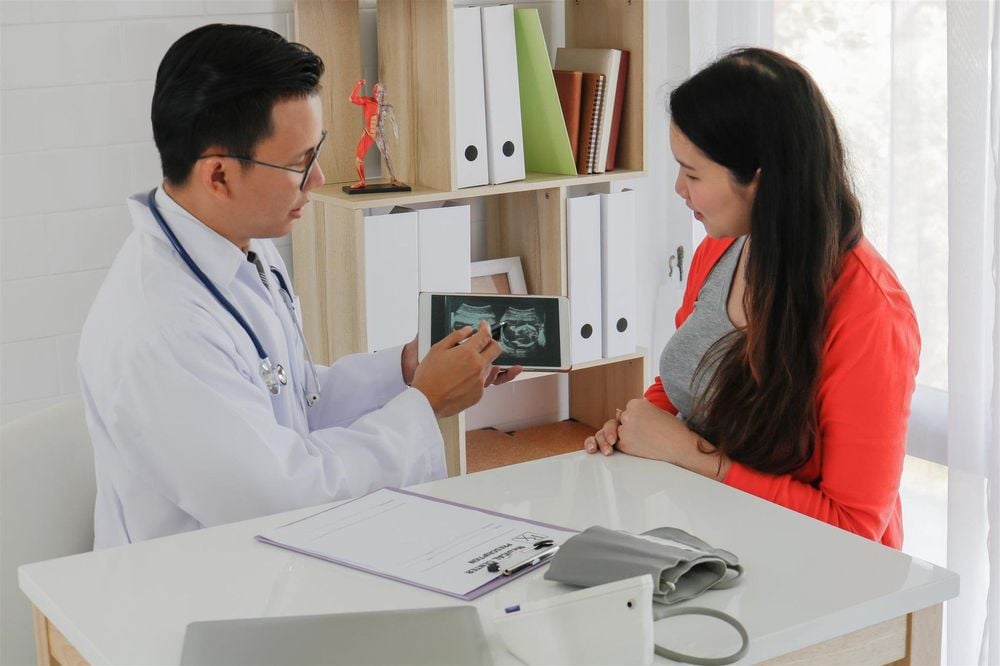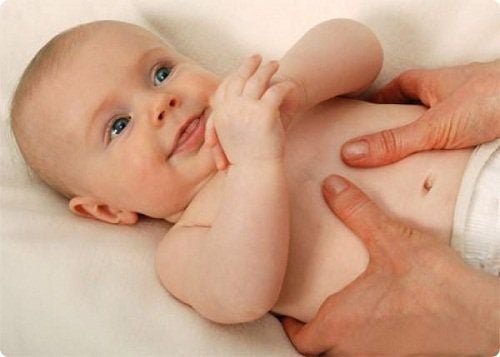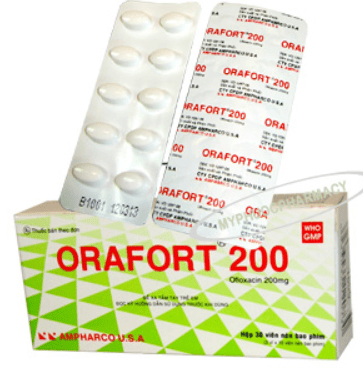This is an automatically translated article.
Neonatal sepsis are infections occurring from birth to 28 days of age, with antenatal, intrapartum and postpartum causes. Neonatal sepsis has the second highest mortality rate after neonatal respiratory distress syndrome. The incidence rate is 6/1000 live births (USA), 3-4 times higher in developing countries.
1. Signs of infant infection
1.1. Early neonatal sepsis Early neonatal sepsis is an infection occurring within the first 3 days of life. (before 72 hours after birth). The most common clinical form is sepsis. Clinical symptoms of early neonatal sepsis include:
Respiratory: cyanosis, dyspnea, whining, rapid breathing > 60 breaths/minute + traction, respiratory arrest > 15 seconds. Cardiovascular: pallor, skin rash, tachycardia > 160 beats/min, cold extremities, time to return to pink skin lasts > 3s, blood pressure drops. Digestion: poor suckling, aborting, abdominal distention, vomiting, diarrhea, gastric juice stagnation > 2/3 of the amount of milk pumped before.

Trẻ bú kém, bỏ bú, trướng bụng, nôn ói là những dấu hiệu nhận biết trẻ bị nhiễm khuẩn sơ sinh sớm
Skin and mucous membranes: pale skin, purple veins, rash, hemorrhage, early jaundice before 24 hours. pustule, edema, scleroderma. Nervous: increased or decreased muscle tone, excitability, convulsions, fontanelle bulge, decreased reflexes, coma. Hematology: death, subcutaneous hematoma, hemorrhage in many places, hepatosplenomegaly. Physical: standing weight or losing weight. Disorders of body temperature regulation. 1.2 Late neonatal sepsis Late neonatal sepsis is an infection occurring after the 5th day of life. The main clinical forms are sepsis, meningitis, local infections (UTIs, skin, umbilical, mucosal infections, osteoarthritis, necrotizing enterocolitis). Clinical symptoms of late neonatal sepsis:
Sepsis : Symptoms are similar to early neonatal sepsis.
Meningitis : May have isolated symptoms, not clear.
Persistent fever or unstable body temperature. Altered consciousness, altered muscle tone, convulsions, excitability, apnea, crying, bulging fontanelle Meningeal symptoms may or may not be present. Irregular breathing, vasomotor disturbances, vomiting. Skin infection
Pinhead-sized pustules, even, shallow, at first clear, then opaque. Dry acne leaves white flakes that easily peel off. The blisters are large and small, initially containing clear fluid, if infected, there is cloudy pus, broken, leaving a red background, clear fluid spreads around the new acne. Exfoliative dermatitis (Ritter's disease): initially as pustules around the mouth, later spreading to the whole body, the epidermis is cracked and broken, leaving red, blood-soaked blisters. Body as a whole: infection, intoxication, high fever, dehydration. May be accompanied by: pneumonia, diarrhea, blood infection. Navel infection
The umbilicus often falls off early, red, swollen, bruised, oozing pus or blood, bad smell, swelling around. The navel often falls off late, is wet, has a bad smell, and is swollen all over the body. ـ Possible: fever, poor appetite, abdominal distension, digestive disorders. Urinary tract infection: Usually jaundice. Urine culture contains bacteria.
Necrotizing enterocolitis: Bloody stools. Symptoms of intestinal obstruction, possibly with abdominal wall reaction.
Mucosal infection:
Conjunctivitis: children close their eyes, red eyelids, discharge or discharge pus. Oral thrush: the fungus is usually on the top of the tongue, at first white like milk residue, the fungus grows thick, spreading all over the tongue, the inside of the cheeks down to the throat, the fungus turns yellow, causing pain to stop feeding. Can cause diarrhea, pneumonia if the fungus gets into the digestive tract and lungs.
2. How to prevent neonatal infection?
To prevent neonatal infections, parents need to do the following things well:
Measures taken before giving birth:
Mothers have antenatal check-ups and full immunizations. Good treatment of urogenital diseases and infections for mothers.

Bà mẹ cần được khám thai, chủng ngừa đầy đủ trước khi sinh
Provide adequate micronutrients for mothers, prevent malnutrition for mothers. Take good care of hygiene for pregnant mothers. Good treatment of cases of premature rupture of membranes, premature rupture of membranes. Avoid prolonged labor During delivery:
Ensure a clean delivery. Avoiding infections transmitted through tools, caregiver hands, as well as maternal infections must be well treated at birth. Avoid obstetric complications: asphyxia, obstetric trauma for mother and child. Measures taken after birth:
Wash your hands before and after taking care of the newborn. This is a very important and effective measure in preventing neonatal infections. Care for skin, navel, eyes. Newborn rooms need to be airy, warm, clean and have enough light. Breastfeed your baby because breast milk contains antibodies that help the baby fight off external agents. The signs and symptoms used to identify neonatal sepsis are varied and easily overlap with other illnesses. Take your baby to the hospital right away if the baby is having trouble breathing, has a seizure, has a fever or feels cold, is bleeding, has diarrhea, is too light weight, or is not able to breastfeed at all. In case the baby has a newborn infection, parents need to calm down and coordinate with the doctors to treat the baby most effectively.
As a key area of Vinmec Health system, Pediatrics Department always brings satisfaction to customers and is highly appreciated by industry experts with:
Gathering a team of top doctors and nurses in Pediatrics : consists of leading experts with high professional qualifications (professors, associate professors, doctorates, masters), experienced, worked at major hospitals such as Bach Mai, 108.. Doctors All doctors are well-trained, professional, conscientious, knowledgeable about young psychology. In addition to domestic pediatric specialists, the Department of Pediatrics also has the participation of foreign experts (Japan, Singapore, Australia, USA) who are always pioneers in applying the latest and most effective treatment regimens. . Comprehensive services: In the field of Pediatrics, Vinmec provides a series of continuous medical examination and treatment services from Newborn to Pediatric and Vaccine,... according to international standards to help parents take care of their baby's health from birth to childhood. from birth to adulthood Specialized techniques: Vinmec has successfully deployed many specialized techniques to make the treatment of difficult diseases in Pediatrics more effective: neurosurgery - skull surgery, stem cell transplantation. blood in cancer treatment. Professional care: In addition to understanding children's psychology, Vinmec also pays special attention to the children's play space, helping them to have fun and get used to the hospital's environment, cooperate in treatment, improve the efficiency of medical treatment.
Please dial HOTLINE for more information or register for an appointment HERE. Download MyVinmec app to make appointments faster and to manage your bookings easily.













